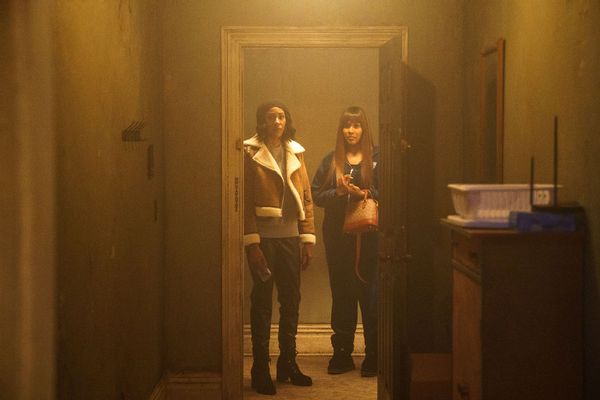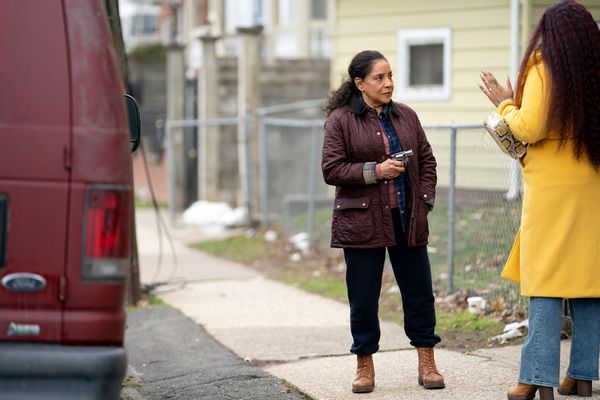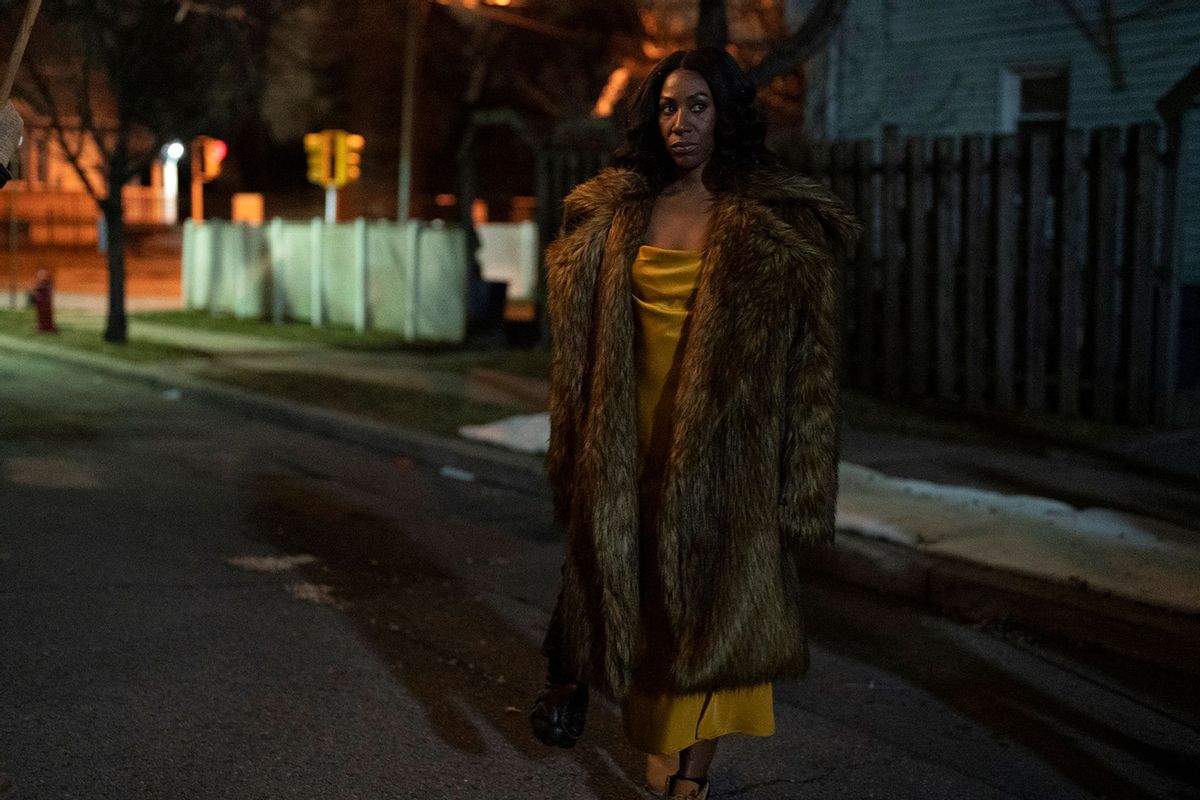Last week Hulu canceled “Death and Other Details” which isn’t surprising considering what a derivative concept it was working with. Setting a murder mystery on an exclusive cruise isn't enough to make its predicaments distinctive. Besides, we have plenty of alternatives that are better at seizing our attention. Documentaries about unsolved murders, grifters and cults proliferate now and forever.
The weekly whodunit was never entirely absent from TV, even if for a long stretch it was dominated by Dick Wolf’s copaganda crusades. Streaming’s expansion brought more British mysteries and private detectives into our view, along with a resurgence in Agatha Christie’s style of crime solving, courtesy of Rian Johnson and “Knives Out.”
Johnson created “Poker Face,” an acclaimed hit that echoes “Columbo” and “Kojak,” casting Natasha Lyonne as a broke, itinerant woman whose internal B.S. detector won’t allow her to stand by when crimes are unfolding under her nose. “Only Murders in the Building” predates it, maintaining its popularity and raising the bar with celebrity castings with each new season – although how the producers top Meryl Streep is its own puzzle. And a good one.
Survey all these shows, along with past hits and flameouts, and you may notice a certain category of missing folks. OK, you probably won’t, so I'll spell it out. None of these shows feature Black women as crime-solvers living and working primarily in Black spaces. “Diarra From Detroit” shows us the unmined vein of platinum sitting there, waiting to be claimed and refined. Given how concisely and wonderfully Diarra Kilpatrick digs into it, a person might be content to have her keep it to herself.
Kilpatrick isn’t entirely fresh to the gumshoe storytelling business, having appeared in HBO’s “Perry Mason.” In the show Kilpatrick created she confidently strides through spaces most true crime shows don’t bother with.
Her Diarra Brickland is a Detroit schoolteacher on the verge of divorce, dumped by a charismatic, manipulative husband Francois (Morris Chestnut) who requests an open marriage as a means of signaling he’s done. He keeps the nice house in Grosse Pointe, along with the fancy friends. She retreats to her mama’s house in The D, conveniently situated next door to Moni (Claudia Logan) the friend she lost contact with after moving out and up in the world.
 Diarra From Detroit (BET)Few spots are more ideal for an emotional spinout than the living room of your childhood home. Diarra doesn't keep her mess behind closed doors, though.
Diarra From Detroit (BET)Few spots are more ideal for an emotional spinout than the living room of your childhood home. Diarra doesn't keep her mess behind closed doors, though.
At work, they call her Captain Extra. At home, she marches into the headquarters of the neighborhood stick-up man Danger (Jon Chaffin) – another childhood friend – and threatens his pet.
Her closest friends Aja (DomiNque Perry) and Tea (Bryan Terrell Clark) are deeply concerned. Lamenting the death of her love life, Diarra decides the best way to jumpstart her new chapter is to swipe right on Tinder.
She matches with Chris (Shannon Wallace), a dream date who smooths over the uncomfortable start to their dinner by suggesting they skip right to the third date and the accompanying throwdown sex. They part with assurances that they’ll see each other again, which Diarra takes seriously. Not as hard as when he stops returning her texts, though.
Few forces are more formidable than a Black woman who’s been wronged – again, and for the millionth time – and decides that this time they’re not letting it slide. Diarra suffers from a severity of insomnia she says has “turned her into a white woman from a horror movie,” which has an array of connotations, most of them related to fragility.
Chris’ ghosting, however, sparks the opposite in Diarra, transforming her into a hybrid of a suspicious true crime addict and the Final Girl. She deserves answers, she decides – not for her, but for justice's sake. What if Chris is missing? Not only that, what if he’s actually Deonte Brooks, a boy who went missing almost 30 years ago and for whom nobody kept searching?
Popular murder mysteries speak to the parts of us yearning to decipher the complexity intrinsic to being human. The overlap in the Venn diagram between fictional cases and true crime stories contains curiosities that too many producers assume mainstream audiences don’t harbor concerning anybody who isn’t white.
Kenya Barris isn’t one of them. Through “Diarra From Detroit,” he and fellow executive producer Kilpatrick tap a creative well that is fed from multiple sources. Their star character may be a woman plummeting to an emotional rock bottom, and a bracingly funny one at that, but that doesn’t mean her instincts are off.
We need your help to stay independent
Diarra’s quest also slams her into obstacles Black folks accept as givens. While the world bends over backward to find missing white women and absolves well-to-do white men of suspicion, the police write off missing Black people like Deonte all the time. HBO aired a four-episode documentary about it called “Black and Missing” that deserved more public response than it received.
Both that series and this one touch on the reality that Black women in crisis typically aren’t believed by authorities or anyone else. Worse, they’re blamed for the crime, which is what happened to Deonte’s mother (played in the present day by Phylicia Rashad) – a stain that inspires the extralegal work she carries out decades after her child vanished.
If Deonte has a shot at being found, it’s because Diarra cares. And if Diarra can keep going that’s in no small part due to the people who believe in her – her friends, along with neighbors that outsiders would rather reduce to stereotypes and avoid instead of getting to know them. She wants to solve her mystery, as every private detective does. As she’s talking to her friends it also dawns on her that what she really wants is something Black women don’t often get from the folks who do them wrong: an apology.
 Diarra From Detroit (BET)“Diarra From Detroit” conveys a sense of place, community, and legitimate lightness infrequently (if ever) portrayed about Detroit, a city condemned by entertainment and media coverage as a tragic, violence-plagued lost cause. Kilpatrick steps into that fog to depict it as only someone who’s from a place like it knows, that regular folks who decide to care about other people are what hold economically blighted spots together.
Diarra From Detroit (BET)“Diarra From Detroit” conveys a sense of place, community, and legitimate lightness infrequently (if ever) portrayed about Detroit, a city condemned by entertainment and media coverage as a tragic, violence-plagued lost cause. Kilpatrick steps into that fog to depict it as only someone who’s from a place like it knows, that regular folks who decide to care about other people are what hold economically blighted spots together.
Diarra, though, is more than that – someone knowable yet not conventionally categorizable, as Kilpatrick proves during a “single girls” get-together where every stereotype of a Strong Black Woman shows up.
She’s more the kind of woman who screams along to Eminem’s “Kill You” in her car because she likes to channel white male anger. “They say Black women are angry? . . . White men do anger and camping better than anyone. Money, power, respect, must be infuriating. Because they stay hot.”
Kilpatrick keeps the mystery light by weaving sidesplitting scenes and lines throughout each hour, never letting the scary moments overwhelm the absurdity of her mission.
The typical comedy equation is tragedy plus time; “Diarra From Detroit” formulates an alternate calculation that joins crisis and unanswered questions. As Diarra gets closer to the truth of what happened with Chris, she ventures into greater peril.
Want a daily wrap-up of all the news and commentary Salon has to offer? Subscribe to our morning newsletter, Crash Course.
“Being a Black woman makes everything more difficult,” she says after her hunt nets a second dead body. “You can’t even take a trauma shower without getting your . . . hair wet.” But she has no choice but to keep getting out of bed each day, as she explains, since going through a meltdown isn’t enough of an excuse for Black women to take a day off work or slack off in other parts of her life.
Traumas significant and tiny are part of just about every detective’s origin story, from Sherlock Holmes to Lyonne’s Charlie Gale. That doesn’t necessarily make them fascinating enough to stick with for eight episodes or more. It's all in how they carry it, and how that experience makes them better at unraveling the enigma of transgression.
“Diarra From Detroit” isn’t set on a cruise for the wealthy and connected, but in a once-vibrant industrial city that still has a vibe and a rich history only the people born and raised there understand.
And Diarra makes us care enough to hope she gets what she needs out of solving the case, whether that’s validation, commendation or that second date she’d pinned her heart on. We can relate, which is why we're staying on this detective's six.
New episodes of “Diarra From Detroit” stream on Thursdays on BET+.



Shares